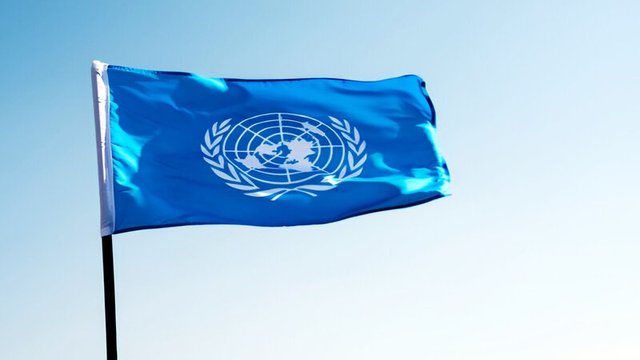
What is the United Nations?
May 27, 2025

If you're considering a global degree in international relations, one of the most important institutions you’ll study is the United Nations. This global organisation plays a central role in international diplomacy, peacekeeping, development, and human rights. But what is the United Nations, exactly?
In this blog, we’ll explore its origins, structure, purpose, and the kinds of careers it offers – particularly for students who graduate from programmes in international relations, such as the ones offered at Universidad Europea.
Describing the United Nations
The United Nations, commonly known as the UN, is an international organisation founded to promote peace, security, and cooperation among countries. It serves as a platform where nations can come together to discuss and address global issues such as war, poverty, climate change, and humanitarian crises.
If you’ve ever asked yourself, “what is the United Nations?”, think of it as the world’s largest diplomatic table – a space where dialogue, negotiation, and international action happen.
The UN is composed of various bodies, including the General Assembly, the Security Council, the International Court of Justice, and more than a dozen specialised agencies like the World Health Organization (WHO) and UNESCO.
Its work spans from maintaining international peace to supporting sustainable development, human rights, and international law.
How was it founded?
The idea for the United Nations came about during the Second World War. In 1945, after witnessing the devastation caused by two world wars, 50 countries met in San Francisco to draft the UN Charter. Their goal was to create an organisation that would help prevent future conflicts, promote peace, and foster international cooperation.
On 24 October 1945, the United Nations was officially established when the UN Charter was ratified by China, France, the Soviet Union, the United Kingdom, the United States, and a majority of other signatories. That date is now celebrated annually as United Nations Day.
Who are its members?
There are currently 193 member states in the UN – nearly every recognised country in the world. Membership is open to any peace-loving state that accepts the obligations of the UN Charter and is willing to carry them out.
Each member state has a seat in the General Assembly and contributes to the organisation’s goals. However, a smaller group – the five permanent members of the Security Council (China, France, Russia, the United Kingdom, and the United States) – wield special influence, including veto power over Security Council decisions.
What does it do?
The United Nations has a broad and ambitious agenda. Its work is divided into five main areas:
- Maintaining international peace and security: Through peacekeeping missions, conflict mediation, and diplomacy.
- Promoting sustainable development: Supporting the 17 Sustainable Development Goals (SDGs) to address global challenges like poverty, hunger, and climate change.
- Protecting human rights: Monitoring and addressing abuses, supporting justice systems, and advancing global human rights standards.
- Delivering humanitarian aid: Providing emergency relief during natural disasters, war, and famine.
- Upholding international law: Through courts, tribunals, and legal frameworks to promote justice and accountability.
In short, when someone asks, “what is the United Nations?”, the answer is: a vital institution striving to improve global life through cooperation and legal frameworks.
Types of careers within the UN
If you are thinking of a career in the international relations sector, working at the United Nations is diverse and can take you almost anywhere in the world. Here are a few of the key career paths:
- Diplomacy and political affairs: Working on conflict resolution, peacebuilding, and negotiations between nations.
- Human rights: Monitoring rights abuses, supporting legal reforms, or working on the ground with communities.
- Development and humanitarian aid: Helping nations achieve the Sustainable Development Goals or delivering emergency aid.
- Legal affairs: Assisting with international law, justice reform, and working with tribunals.
- Communications and public information: Creating campaigns, reports, and media to promote the UN’s work.
- Administrative and management roles: Overseeing projects, staff, and logistical operations in various countries.
Fluency in multiple languages (especially the UN's six official languages: Arabic, Chinese, English, French, Russian, and Spanish) is often a key advantage.
What degrees can help?
To work within the United Nations, having the right academic background is essential. Here are some of the most useful degrees:
- Degree in International Relations: This foundational course offers a deep understanding of global politics, diplomacy, and international institutions.
- Global Bachelor Double Degree in International Business and International Relations: This interdisciplinary programme combines international economics with diplomacy – ideal for roles at the UN dealing with trade and development.
- Dual Bachelor's Degree in International Relations and Law: Combining legal knowledge with international affairs, this degree is excellent for those pursuing roles in human rights, justice, or legal advisory positions within the UN.
Many UN staff also pursue postgraduate degrees in areas like international development, conflict resolution, human rights, or environmental policy.
Whether you're drawn to diplomacy, development, or law, the UN offers a wide range of career possibilities for those passionate about making a global impact. And by choosing one of our degrees in international relations at Universidad Europea, you’re already one step closer to becoming part of its mission.